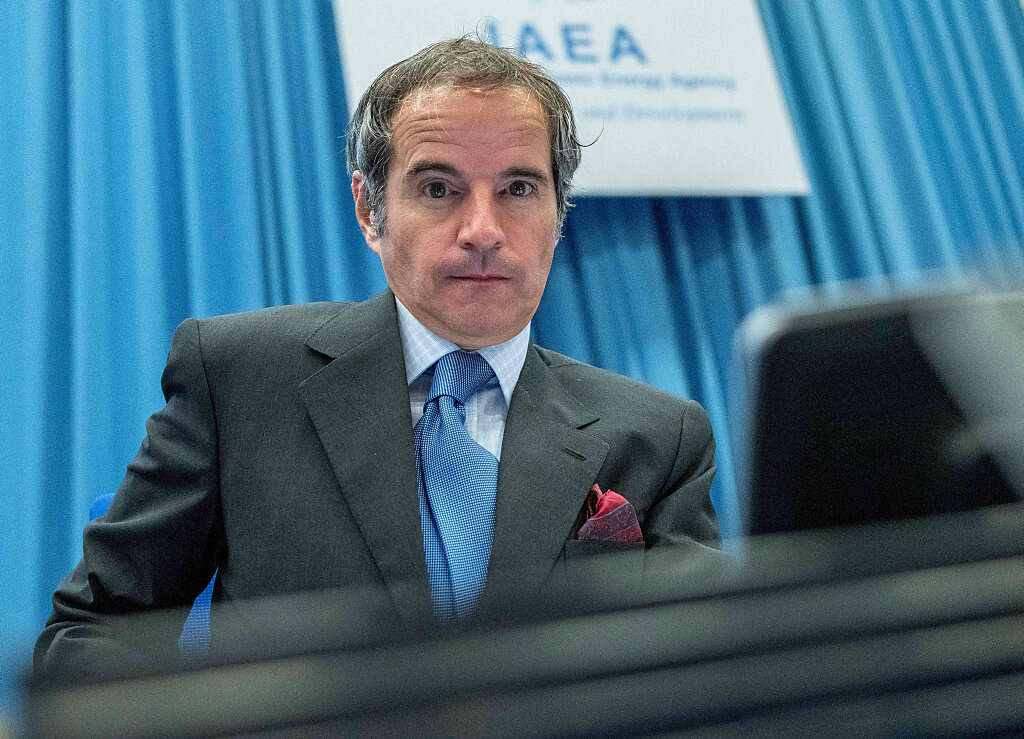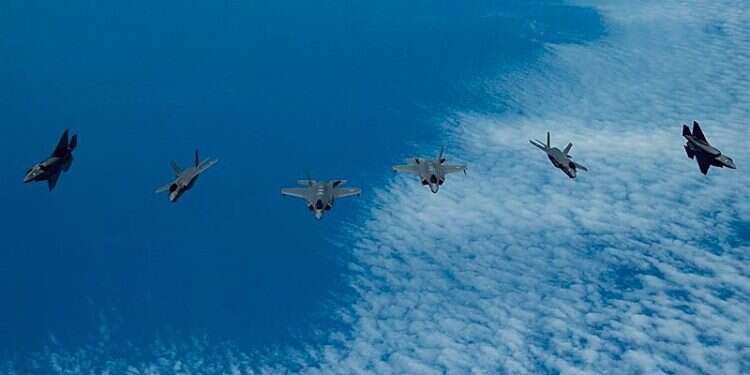As dozens of Israeli warplanes conducted a long-range exercise over the Mediterranean Sea to simulate an attack on Iran's nuclear facilities on Tuesday, the Islamic republic accused the Jewish state of influencing a "not fair and balanced" report by the United Nations' nuclear watchdog on undeclared nuclear material found at three sites.
Follow Israel Hayom on Facebook, Twitter, and Instagram
"It is feared that the pressure exerted by the Zionist regime [Israel] and some other actors has caused the normal path of agency reports to change from technical to political," Iranian Foreign Ministry Spokesperson Saeed Khatibzadeh told reporters, referring to a report issued the previous day by the International Atomic Energy Agency.
Monday's report by the IAEA said that Iran has not provided satisfactory answers to its long-standing questions on the origin of uranium particles found at three undeclared sites despite a fresh push for a breakthrough.
"Unfortunately, this report does not reflect the reality of the negotiations between Iran and the IAEA," Khatibzadeh said. "We expect this path to be corrected."
The lack of progress could set up a new diplomatic clash with the West when the agency's 35-nation Board of Governors meets next week. If Western powers seek a resolution criticizing Tehran it could deal a further blow to stalled efforts to revive the 2015 nuclear deal.
The fresh quarterly IAEA report detailing Iran's continued failure to provide credible answers raises pressure on the United States and its allies to take action against the regime at the board meeting, since Tehran and the IAEA announced a renewed push in March to clear things up.
"Iran has not provided explanations that are technically credible in relation to the agency's findings at those locations," the report said, adding: "The agency remains ready to engage without delay with Iran to resolve all of these matters."

A separate quarterly IAEA report said Iran's stockpile of uranium enriched to 60%, close to the roughly 90% that is weapons-grade and in a form that can be enriched further, is estimated to have grown by 9.9 kilograms (22 pounds) to 43.1 kilograms (95 pounds).
That amounts to slightly more than what the IAEA calls a "significant quantity," defined as "the approximate amount of nuclear material for which the possibility of manufacturing a nuclear explosive device cannot be excluded."
Last week, US special envoy for Iran Robert Malley cast doubt on the chances of a deal with the Islamic republic, further sparking speculation about the potential collapse of nuclear talks in Vienna.
Reacting to Malley's stance, Khatibzadeh blamed the ongoing pause in the negotiations on Washington's refusal to adopt initiatives from Iran and Europe.
"If the US gives up on hesitation and makes a political decision, there would definitely be no deadlock, and even the remaining sections of the agreement will be sorted out," he added.
Subscribe to Israel Hayom's daily newsletter and never miss our top stories!
Also on Tuesday, Prime Minister Naftali Bennett called on world leaders to hold Iran accountable for "lying to the world" after an earlier report by the Wall Street Journal revealed that the ayatollah regime gained access to confidential IAEA reports and for two decades used them to mislead the organization and conceal suspected work on nuclear weapons.
"After Iran stole classified documents from the UN nuclear agency, it used the information to understand what the agency was hoping to find, then fabricated a cover story and his evidence to invade a nuclear investigation," Bennett said.
According to The Wall Street Journal, the documents, which featured handwritten notes in Persian, were among the files seized by Israeli intelligence in January 2018 from a Tehran archive.
Bennett presented several documents during his remarks that implicate Iran, presumably from the archives that were seized in 2018.




